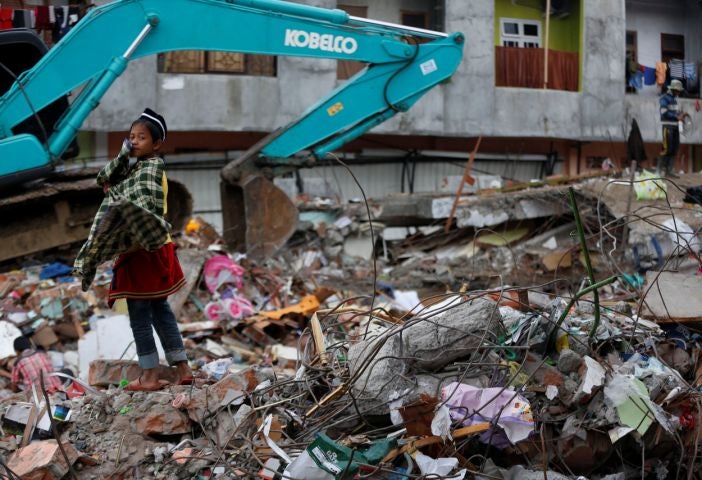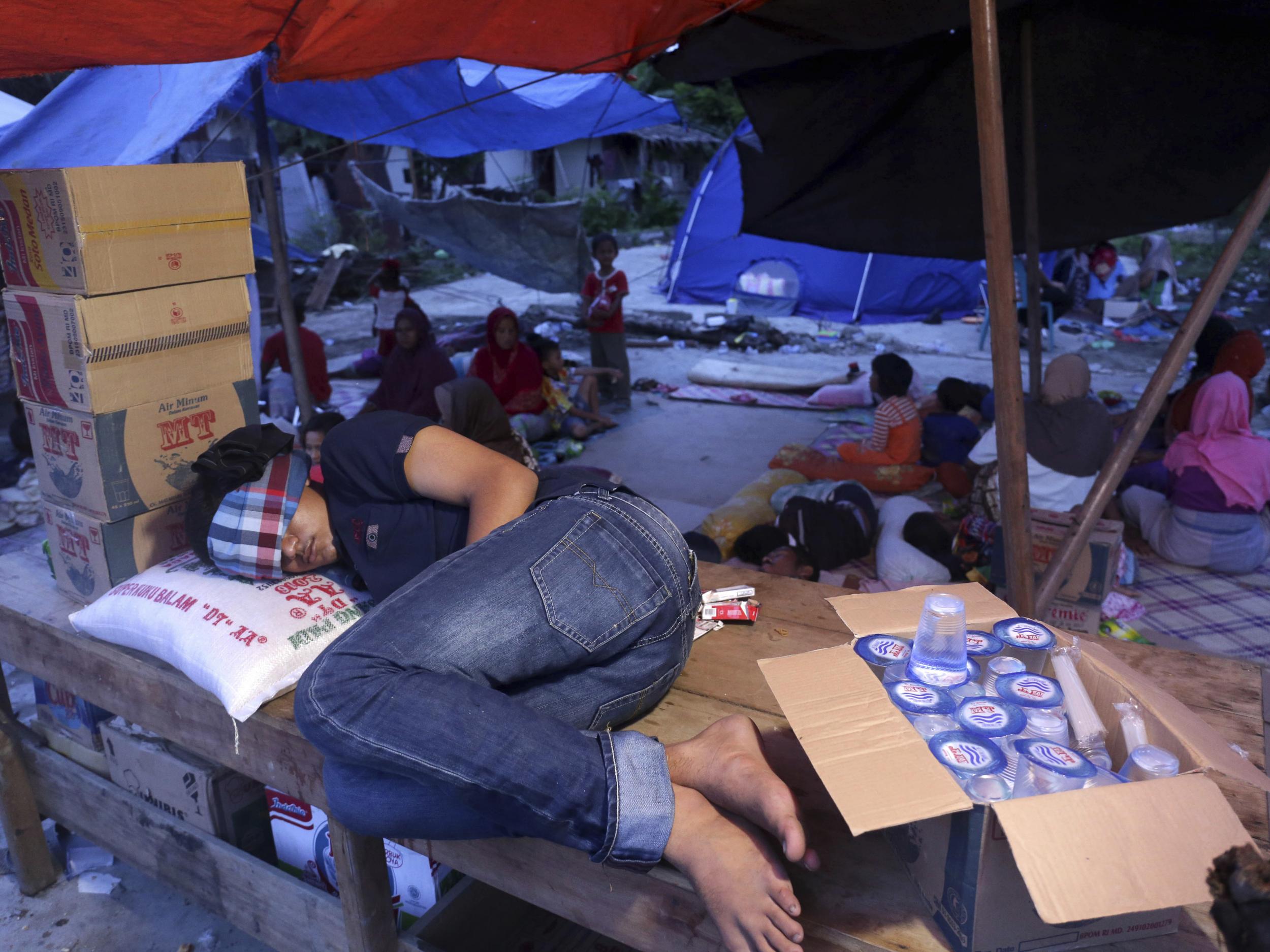Indonesian earthquake leaves at least 45,000 homeless
Thousands of pupils in one of the worst-affected areas cannot go to school because the buildings are unsafe, prompting a charity to warn this will have 'a huge impact on their recovery and well-being'
Tens of thousands of people have been displaced after a strong earthquake shook Indonesia’s Aceh province, leaving government and aid agencies scrambling to meet their basic survival needs.
At least 45,000 people have been made homeless by Wednesday’s 6.5-magnitude earthquake, with authorities saying the number was increasing.
Relief teams have spread across three districts near the shallow epicentre of the quake, which killed at least 100 people and injured more than 700.
At least 11,000 buildings were damaged or destroyed completely – including mosques, schools, businesses and many homes – while roads were cracked and power lines disrupted.
“We have 45,300 people evacuating in several places as of Saturday morning,” national disaster agency spokesman Sutopo Purwo Nugroho told AFP, adding that the number of displaced had almost doubled as the scale of the devastation revealed itself.
People were spending nights outdoors in tents, fearing larger temporary shelters would succumb to aftershocks, he said.

The military has established kitchens, shelters and a field hospital in Meureudu, a badly hit town in which a market was razed to the ground by the quake. Sniffer dogs were still searching the rubble for possible survivors.
The search also continued in several other areas in the Pidie Jaya region.
President Joko Widodo travelled to the worst-hit areas of the province on Friday, pledging to rebuild the area's devastated settlements and calling for Indonesians to pray for those affected.
Meanwhile, Indonesian children's organisation Yayasan Sayangi Tunas Cilik (YSTC) warned that an education crisis was emerging in the wake of the quake, which destroyed or damaged up to a third of classrooms in the worst-affected areas.
“We’re seeing a lot of classrooms with large cracking in the walls, and until they can be repaired and their structural integrity restored, they are not fit for use,” the charity said in a statement.
“This means thousands of children are indefinitely out school, which will have a huge impact on their recovery and well-being.

“When school buildings are safe, we know they are the best place for students to be following a disaster like this. It creates a sense of normality and safety and supports childrens' emotional recovery.”
Australia's government has pledged A$1m (£592,000) of humanitarian aid to Indonesia with foreign minister Julie Bishop saying her country would respond to additional requests for assistance.
Indonesia experiences frequent seismic and volcanic activity because of its position on the Pacific “Ring of Fire”, where tectonic plates meet.
A huge undersea earthquake in 2004 triggered a tsunami that wreaked havoc in several countries around the Indian Ocean, killing more than 170,000 people in Indonesia alone, the vast majority in Aceh.
Additional reporting by Associated Press
Join our commenting forum
Join thought-provoking conversations, follow other Independent readers and see their replies
Comments